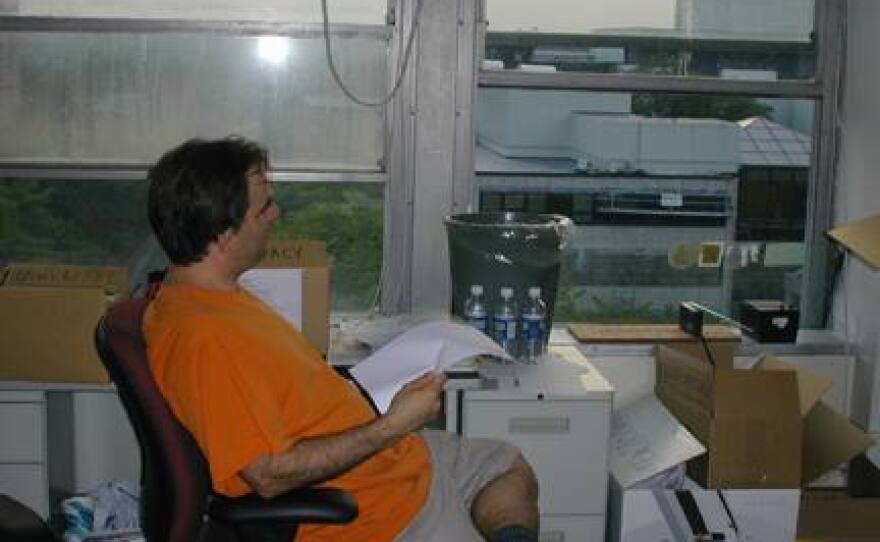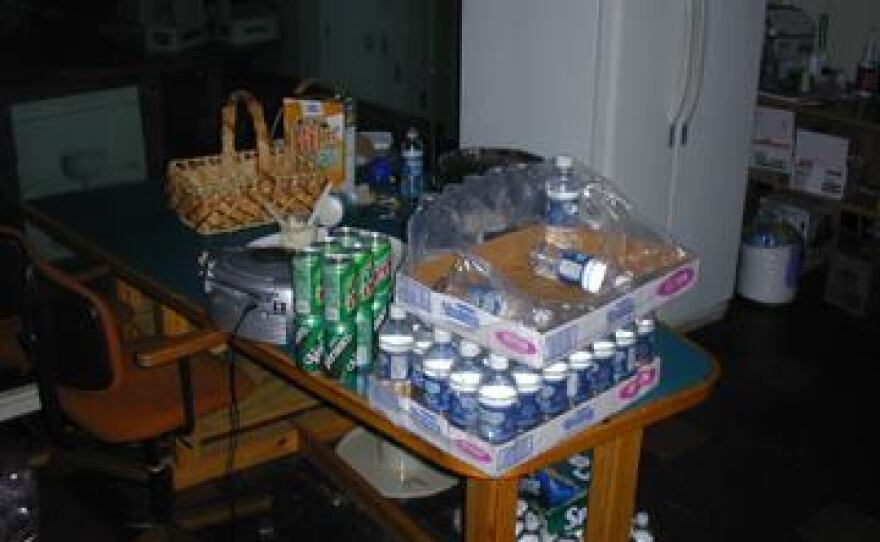Today is the ten-year anniversary of the Northeast blackout of 2003.
On August 14, 2003 at 4:10 pm, eight U.S. states and parts of Ontario lost power.
In Cleveland, Ohio, an overgrown tree branch touched a sagging, overloaded power line. The line short-circuited and, well, you know how it ended.
It was one of the biggest power outages that the U.S. ever saw. At first, people were worried it was an act of terrorism, but when the blackout was confirmed as merely a power outage, the mood shifted.
Much of southeastern Michigan was affected (about 2.3 million households were without power). The cities of Ann Arbor, Lansing, and Detroit were victims of the blackout. Some areas, such as Brighton and Holly, were in geographical pockets where residents had power.
Water supplies in Detroit were disrupted because the city used electronic pumps. All water in the Metro Detroit area was required to be boiled until August 18 to ensure potability.
Here at Michigan Radio, our back-up battery only lasted so long, so we scrambled to find a generator to keep us on-air (see a few photos above).
We asked our Facebook fans to chime in with their experiences. Here's a snippet:

And of course, Michigan wasn't the only state affected.
Listen to WNYC's coverage of the 2003 outage and check out photosof the blackout from the New York Times.
This outage cut power to roughly 50 million people, and cost $6 billion to clear up.
These days, according to an analysisby the Associated Press, more money has been devoted to improving maintenance of the grid.
Maintenance spending for overhead lines increased an average of 8.2 percent per year from 2003-2012. In the period before the blackout, from 1994 to 2003, that spending grew 3 percent on average per year. The grid's reliability is high, according to a May report from the North American Electric Reliability Corp., which sets standards and tracks the performance of the power plants and high-voltage transmission lines that make up the bulk of the power system.
Brian Walsh wrotea storyin Time pointing out that the grid is more reliable now. Walsh writes that appliances have become more efficient and our demand for power has flatlined or gone down.
But that doesn't mean that the grid is prepared for severe weather patterns.
In the last decade, the U.S. spent $18-33 billion a year on weather-related outages, according to a recent White House report.
In the last few years we've been spending more. Last year, some $40-75 billion was spent on extreme storms like Hurricane Sandy.
And, though more money has been spent on power line maintenance and our appliances have become more efficient, superstorms threaten the grid. David Crane of NRG Energy wrote that we're just not equipped for severe weather patterns:
While such outages are rare, when you combine them with natural disasters like Superstorm Sandy and outages like the Super Bowl blackout, they underscore a dire reality: our national electric grid struggles to deliver safe, reliable and affordable power. It's not for lack of effort or money, but rather because the American power industry deploys technology designed in the 1800s to manage a system of wires and wooden poles that is ill suited to the weather challenges of the 21st century. Rather than rebuilding our antiquated distribution system every time it gets torn down, we should be asking how we, as energy consumers, can rethink an industry...can we transition to something better (cheaper, cleaner, more reliable, more personalized) than we get now from our local utility?
There's always room for progress.
So while you're thinking about that, have a beer (21+, of course). The Great Lakes Brewing Company (of Cleveland) seems to have a sense of humor about the whole debacle.

-- Lucy Perkins, Michigan Radio Newsroom











